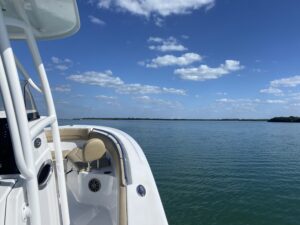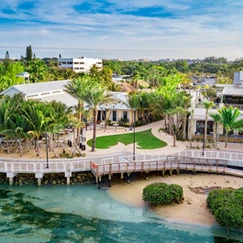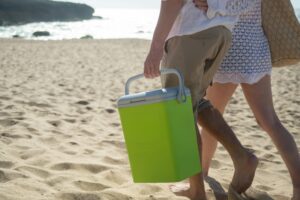Learning nautical terms is a rite of passage to becoming a true boater, but you don’t need to carry around a maritime dictionary or study sailing phrases. Knowing and understand the most important boating terms will help you communicate with those on the boat with you, and keep you safe throughout your adventures!
In this article, we’ll take a look at the directions of your boat, some common boating terms, and some of the nautical words and phrases that have dropped anchor in everyday speech. Bookmark this page for easy reference when you’re underway!
Boating Terms To Know for Safe Navigating
Aft – The direction of movement within a boat that is toward the rear. Sometimes, it is confused with stern, which is a noun describing the rear of the boat. “Keep watch aft for approaching storm clouds.”
Beam – Measurement of a boat at the widest point, typically at the stern of most recreational boats. “This boat has a wide beam of 8’ 6”.”
Channel Markers
A buoy or other mark is used to mark a navigable path through a waterway.
Channel Marker Colors: Understanding Red and Green Markers and Navigation Buoys
Most of the markers and buoys you’ll see will be either red or green, and these colors help identify which side you’ll want to pass them on to remain in a channel.
- As a general rule of thumb, when you’re heading from open water to inland water, or heading upstream in a river, you’ll want to keep the red markers to your right and the green ones to your left.
- So, when you’re heading from the ocean into a bay, or from a bay into a creek, harbor, or port, the red markers belong on your right side.
Hence, the old saying “red right returning.” Sometimes you’ll see an aid to navigation that has horizontal bands of both red and green. These mark the junction between two channels. In this case, the color that’s highest on the marker indicated the preferred or primary channel.
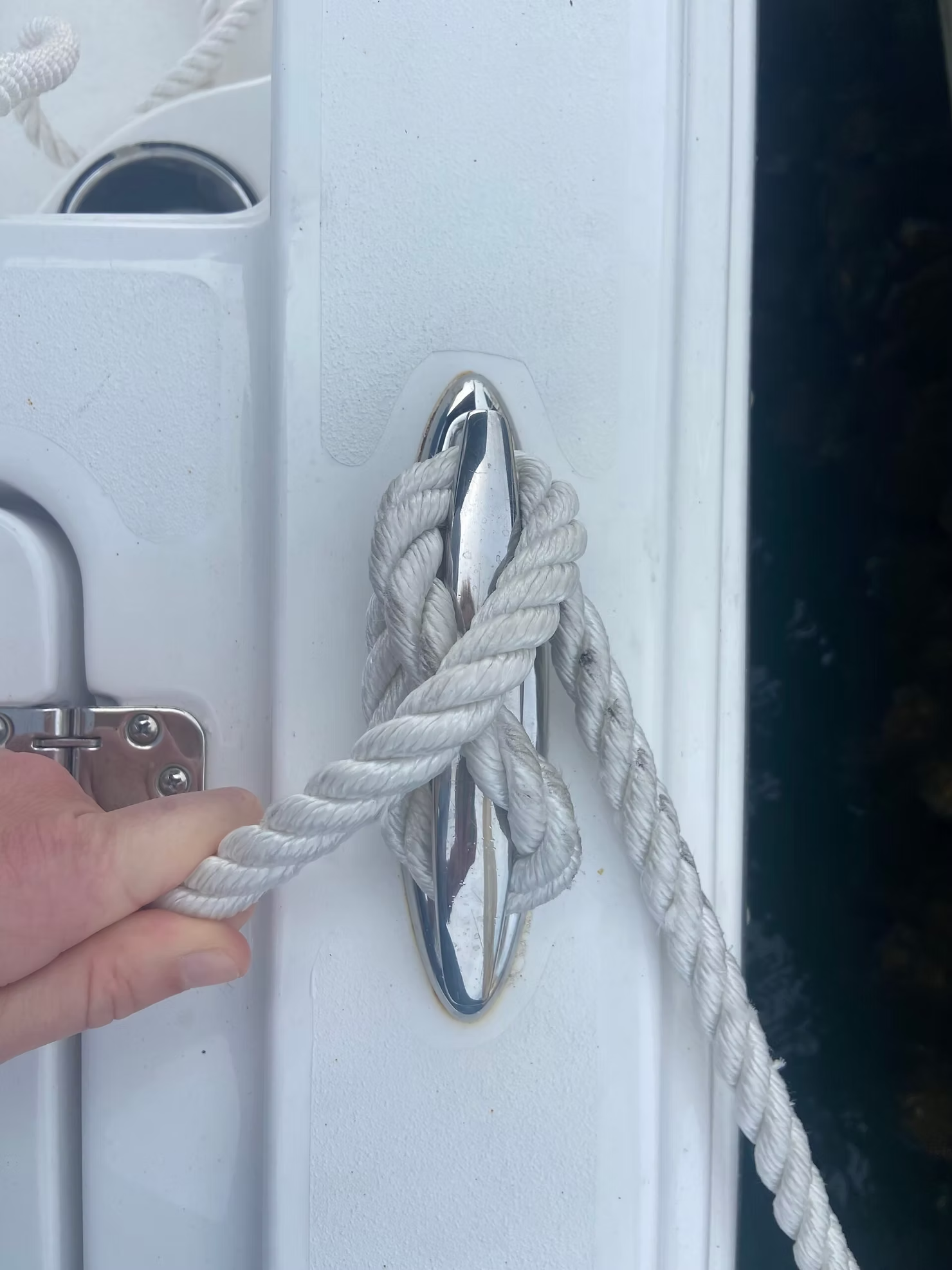
Cleat – A wooden or metal fixture on a boat, ship, or dock to which lines or ropes can be tied for the purpose of securing either the vessel or the vessel’s rigging.
Console – A station to stand or sit at located on the deck which often contains the helm, an operator’s console
Draft – The minimum depth of water a boat can float in, or the distance between the waterline and the bottom of the keel
Ebb – A receding current back out to sea
Fender – A cushion, placed between boats, or between a boat and a pier, to prevent damage.
Give-Way Vessel – A term used to describe the vessel that must yield in meeting, crossing, or overtaking situations.
Gunwale/Gunnel – The top or upper edge of the sides of the boat.
Hatch – A watertight cover or doorway in a boat deck or cabin top
Head – The name for a boat’s toilet
Heading – The direction in a boat is pointed. “We are on a westerly heading.”
Helm – Area of a boat where operational controls are located. “Take the helm.”
Idle Speed – The slowest speed at which steering is possible for a boat.
Jetty – A structure projecting out from the shore to a harbor entrance.
Knot – A knot is a speed measurement for a nautical mile, rather than a statute one. One knot is equal to 1.15 miles per hour. “Our speed is 5 knots.”
Leeward – Direction toward which the wind is blowing, i.e., downwind.
Mooring – An arrangement for securing a boat to a mooring buoy or a pier.
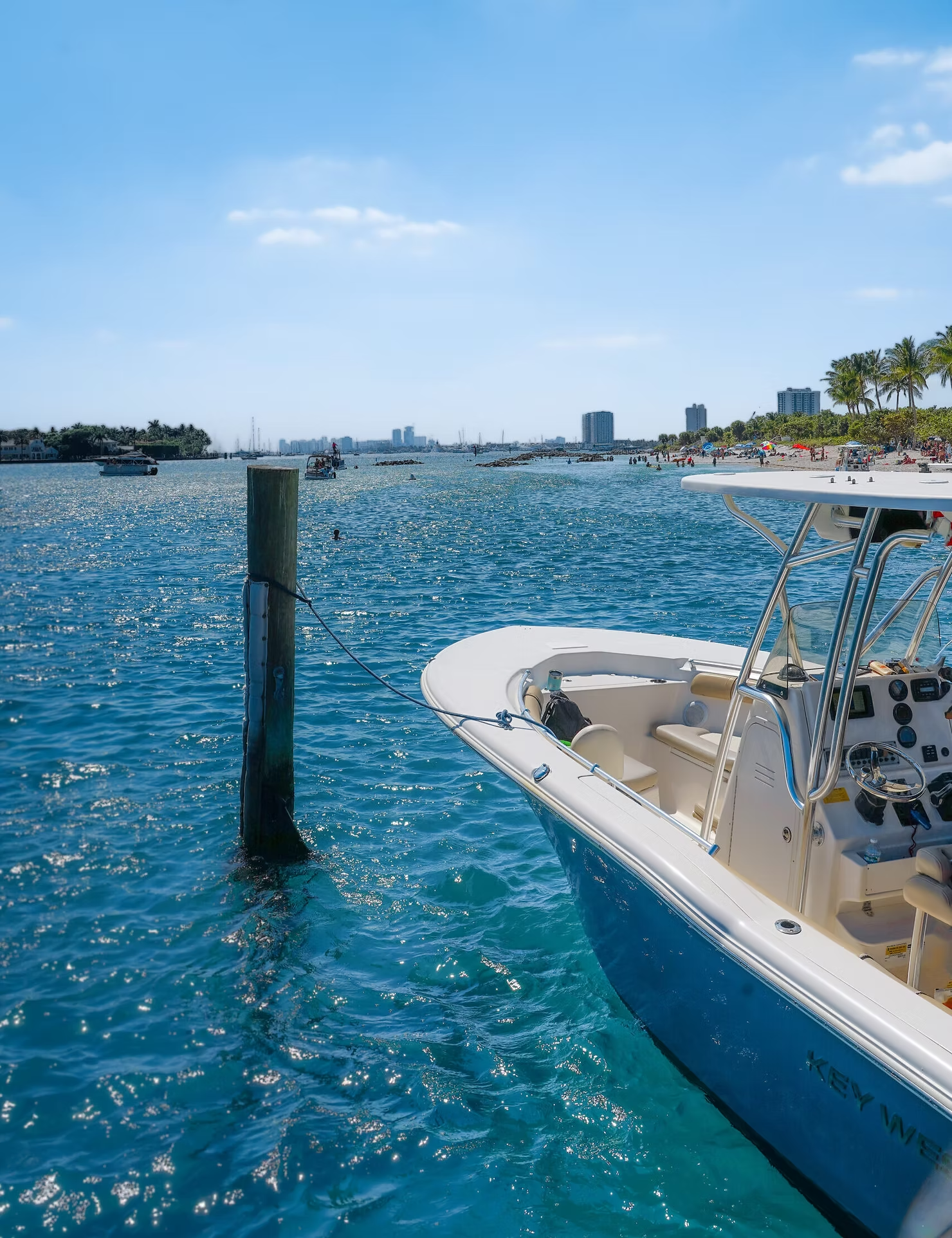
Nautical Mile – One minute of latitude; approximately 6076 feet – about 1/8 longer than the statute mile of 5280 feet.
Outboard – Toward or beyond the boat’s sides. A detachable engine mounted on a boat’s stern.
Planing Hull – A type of hull shaped to glide easily across the water at high speed. A boat is said to be planning when it is essentially moving over the top of the water rather than through the water.
Port – The left side of a boat when standing onboard, facing the bow (as opposed to starboard).
Running Lights – Lights required to be shown on boats underway between sundown and sunup.
Slack – Not fastened; loose. Also, to loosen.
Starboard – The right side of a boat when standing onboard, facing the bow (as opposed to port).
Trim Tabs – Plates on the stern bottom of a boat’s hull that can be adjusted to change the vessel’s attitude, pitch, and roll while underway
Underway – Vessel in motion, i.e., when not moored, at anchor, or aground.
Windward – The direction from which the wind is blowing, i.e., upwind. Windward vessel refers to the boat that is upwind of the other.
Wake – Waves created by a moving boat. “Watch out for the barge wake.”
Ready for a Boat Day? Gulfstream Boat Club will Get You on the Water!
Boating is a wonderful recreational activity, but before you go, it’s important to learn some basic terminology. It will help keep you safe in case of an emergency. With a little preparation, you’ll feel more comfortable on your excursion. Now that you’ve done your homework, you can feel confident about going on a boat. These boating terms will help make for an enjoyable and safe outing. Don’t be afraid to ask Member Services about any new terms that come up while you are on the boat, too!
